Education
CPD, Networking Platforms, Mentorship Needed to Enhance Capacities of Women to Leadership Positions in Uganda
Published
5 years agoon
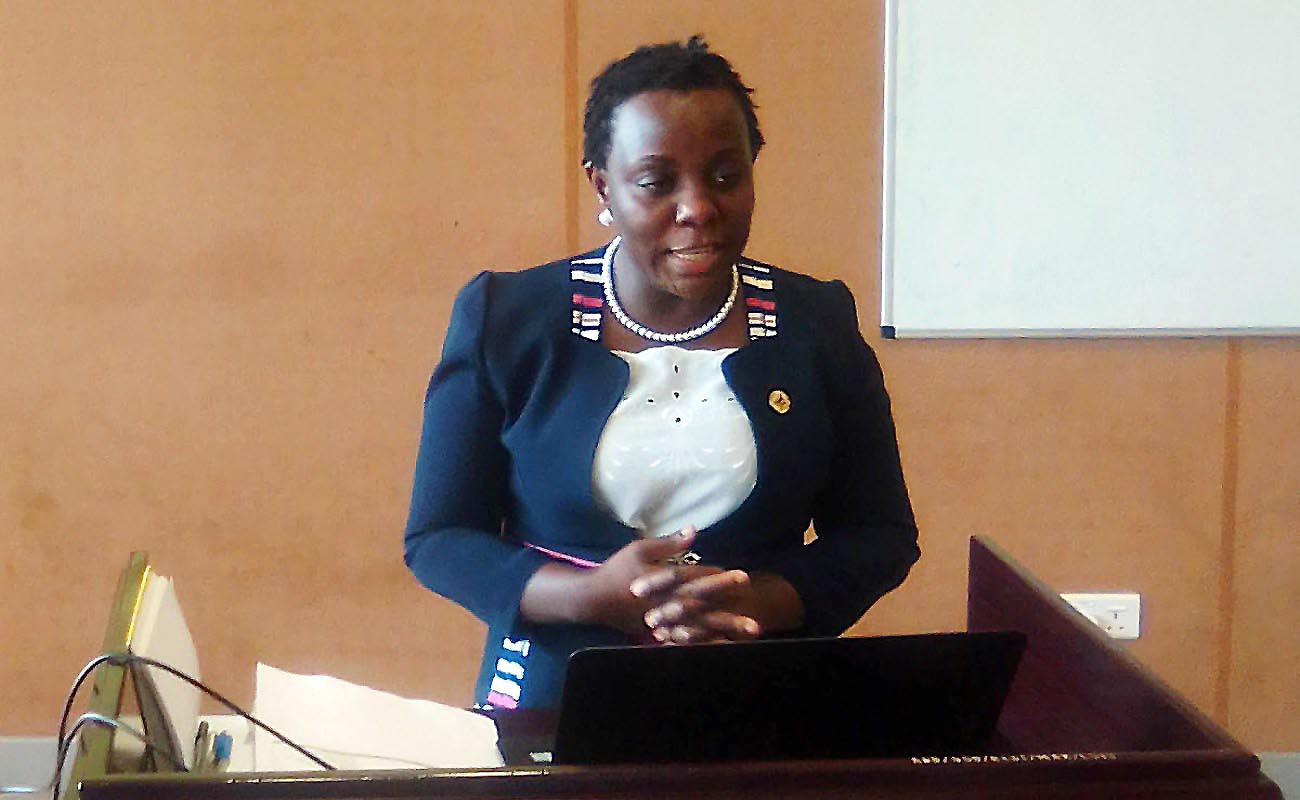
On Thursday 5th November, 2020, a project titled Enhancing Capacities of Women to Leadership Positions in Universities in Uganda (WOLEP) held a Dissemination Event at the Central Teaching Facility 1 (CTF1), Makerere University. The Principal Investigator (PI) WOLEP is Dr. Florence Nakamanya, Lecturer, East African School of Higher Education Studies and Development (EASHESD), College of Education and External Studies (CEES). The WOLEP team that also includes Assoc. Prof. Ronald Bisaso and Ms. Sharon Ainmbabazi recommended that Continuous Professional Development (CPD), Suitable Networking Platforms and Structured Mentorship Programmes are needed to enhance capacities of both incumbent and aspiring women leaders in Uganda’s Higher Education sector. The Dean, EASHESD, Assoc. Prof. Ronald Bisaso who was the moderator welcomed members to the dissemination and gave a preamble of the WOLEP project. The event started with a prayer led by Sr. Bernadette Lutaaya.
The event attracted a number of distinguished personalities who attended both physically and online. In attendance online were; Prof. Joy C. Kwesiga, the Vice Chancellor of Kabale University and the Guest of Honour, Prof. William Bazeyo, the Chairperson Grants Management Committee (GMC), Makerere University Research and Innovations Fund (Mak-RIF), Prof. Charles Masembe, GMC Member, Prof. Fred Masagazi Masaazi,the Principal, College of Education and External Studies(CEES), Ms. Harriet Adong, Head, Communication, RIF, Prof. Monica Chibita, Dean, Faculty of Journalism, Media and Communication, Uganda Christian University (UCU), Assoc. Prof. Betty Ezati, Dean, School of Education, Makerere University and GMC Member. In the physical meeting, we had the project team members, women leaders from Ugandan Universities including Makerere University, Kyambogo University, Ndejje University, Kampala International University, St. Lawrence University, Al-Mustafa Islamic College and female employees from the National Planning Authority (NPA) among others.
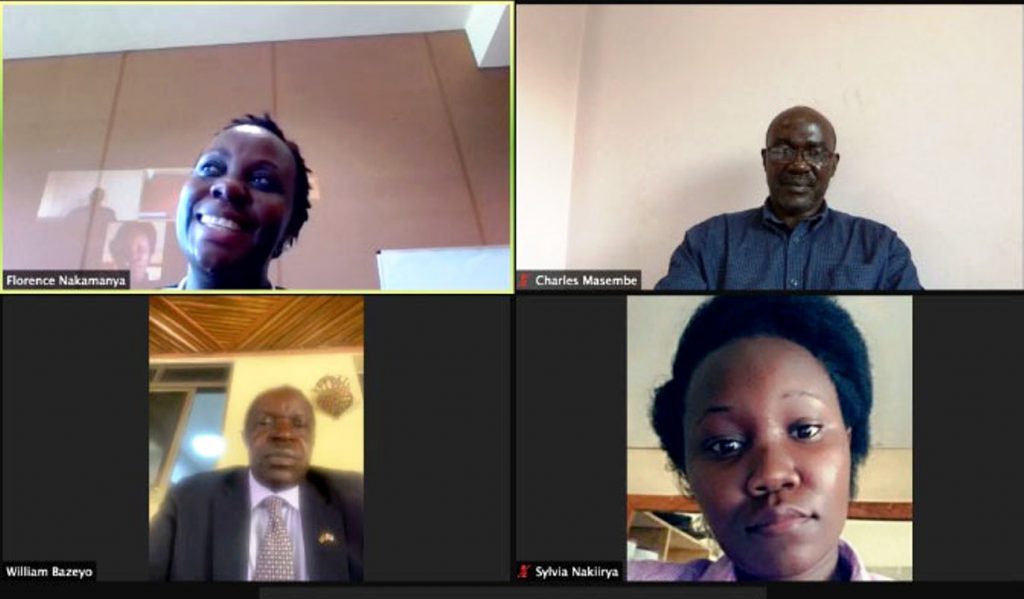
Dr. Nakamanya in her presentation highlighted that the project was made possible with funding from the Government of the Republic of Uganda through Mak-RIF. The PI noted that there exist leadership training programmes aimed at building capacities of female leaders in different parts of the world including Uganda. However, the numbers of women in leadership positions are still miserably low. For instance, she noted, we have only three female Vice Chancellors in Uganda and yet there are over 50 universities. Besides, the leadership training programmes provided are adhoc in nature, they are developed in the western world and adapted to African context, do not meet the current and emerging needs and largely depend on the availability of funding. This then created the need for the WOLEP project.
She enlisted the objectives the project as follows;
- To analyze the Leadership-related Training Programmes (LTPs) that women in leadership positions in universities in Uganda have attended.
- To establish the leadership-related competence profile for women in leadership positions in universities in Uganda.
- To investigate whether the existing leadership-related training programmes influence women’s aspirations and progression to leadership training positions in universities in Uganda.
- To examine women’s experiences with the existing Leadership-related Training Programmes in universities in Uganda.
- To identify the capacity needs and what works for women to occupy leadership positions in universities in Uganda.
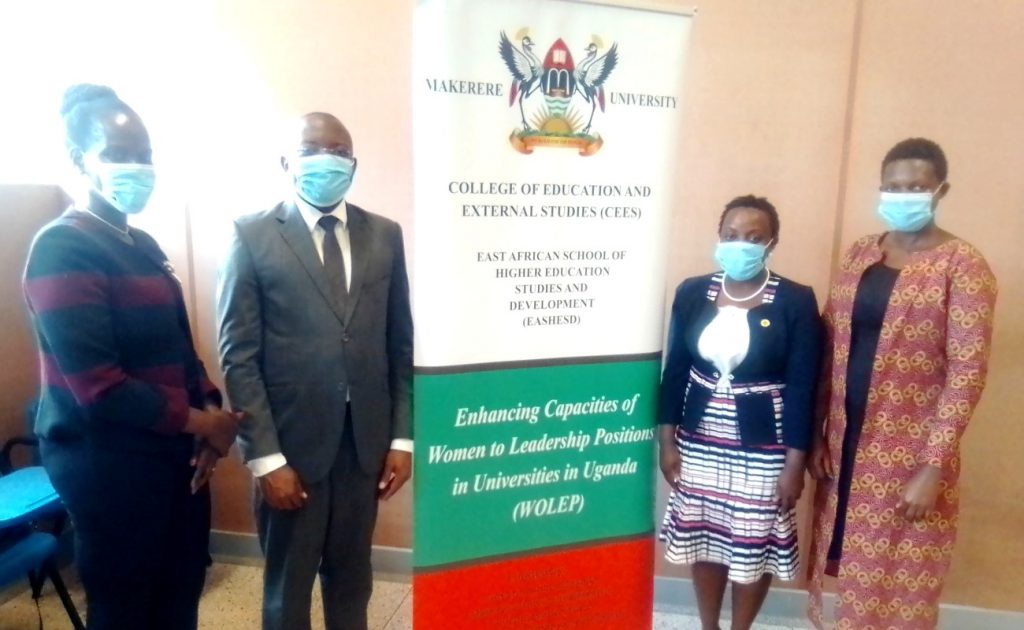
The WOLEP project employed an interpretive approach to research because the team wanted to get an in-depth understanding of the issue that was under investigation. The participants of the project included the incumbent and aspiring female leaders. The Incumbents comprised of senior female leaders like Vice Chancellors, the middle leaders (Deputy Principals and Deans) and the lower leaders such as examination and research coordinators. The aspiring female leaders constituted any female academic member of staff in the university. The participants were purposively selected on the basis that they had ever attended a leadership-related training programmes and were drawn from the different categories of Ugandan Universities. The universities were categorized into public, private religious-affiliated and private-for-profit universities. Data was collected through interviewing 29 participants comprising of 2 senior female leaders, 9 middle female leaders, 9 lower female leaders and 9 aspiring female leaders.
The findings of the study include;
Objective One, where different Leadership-related Training Programmes (LTPs) were analyzed: It was discovered that the participants had attended international leadership-related programmes. Whereas the senior female leaders had participated in programmes organized by the Commonwealth, Higher Education Resources Services, Inter-University Council of East Africa, RUFORUM, the middle female leaders highlighted trainings such as the International Deans’ Course adn COACH AFRICA workshops in South Africa and Finland. Importantly, the international trainings were attended by mostly participants at all levels of leadership from the public universities. The middle female leaders had attended national leadership-related trainings particularly those organized by the National Council for Higher Education (NCHE) whereas the lower and aspiring female leaders had mostly participated in internal institutional trainings.
Objective Two, which was about the competence profile of female leaders: She said that during the interviews, the participants shared competences related to leadership and management, teaching and research. Specifically, competences related to pedagogy, curriculum, research, social challenges, customer care, ICT, confidence building, teamwork, conflict resolution among others. She asked participants to reflect on how they teach and supervise graduate students in higher education.
Objective Three, on whether the existing LTPs influenced women’s aspirations and progression to Leadership: The female leaders shared that the training enabled them to acquire knowledge, share experiences, provided opportunities for personal professional development and networking. In-depth analysis had confirmed that the female leaders’ experiences with the existing LTPs influenced their desire to aspire and progress to academic and administrative leadership positions in Ugandan universities. For example, a female senior leader serving in a public university had said that “we are always given an opportunity to share experiences in the leadership training programmes. I ask colleagues and they would tell me how to solve it. I would get tips that I learn which makes me perform better in my work.”
Objective Four focused on experiences with LTPs: The focus was on the programme structure, stakeholder involvement and post-training experiences. The participants shared that the content provided in the trainings was too broad, theoretical and delivered in a very short period of time and yet very costly. She noted that there was limited stakeholder involvement, the training needs analysis was hardly done and there was unclear selection process. It was also found out that most of the LTPs that female leaders attend in Ugandan universities lacked the aspect of mentorship and did not make follow-ups. In view of this, achievement of the intended outcomes was constrained.
Objective Five identified the Capacity Needs for female leaders: The findings showed that the female incumbent and aspiring leaders would like to be capacitated in areas including networking and mentorship, research and publishing as well as leadership and management skills.
The study concluded that:
- Female leaders had attended International, National, and Institutional LTPs.
- The competence profile of female leaders comprised of leadership and management, teaching and research skills developed from the training programmes.
- LTPs had influenced women’s desire to aspire and progress to leadership positions.
- LTPs were too costly, theoretical with broad content, with limited stakeholders’ involvement, no follow up and lacked mentorship opportunities.
- Networking, mentorship, research and publishing as well as leadership and management skills were the capacity needs of incumbent and aspiring female leaders in Ugandan Universities.
The study recommended that:
- Continuous Professional Development should be rolled out for both incumbent and aspiring female leaders. The modularized programme that has been developed out of the current study will span a reasonable period of time and will be flexibly delivered using blended training approaches at the East African School of Higher Education Studies and Development, Makerere University.
- Universities should initiate sustainable networking platforms that provide avenues for incumbent and aspiring leaders to share experiences, challenges and new insights on how to perform their duties through periodic meetings and reflective seminars that could be flexibly organized or delivered using online technologies and social learning platforms like WhatsApp, Facebook, Zoom etc.
- The Ministry of Gender, Labour and Social Development and other relevant stakeholders should collaboratively initiate and support robust structured mentorship programmes for women in higher education where those with rich experience are invited to share their life stories which could be published in different formats like videos and used to continually nurture aspiring leaders and equally enhance women’s progression to leadership
The study proposed an intervention/solution/programme informed by a range of capacity needs that were highlighted by women at the different levels of leadership. The two modules developed to be flexibly delivered are:
- Leadership and Management in Higher Education
- Career Advancement of Women in Higher Education
The PI shared a quote by Sheryl Sandberg:“If more women are in leadership roles, we’ll stop assuming they shouldn’t be”.
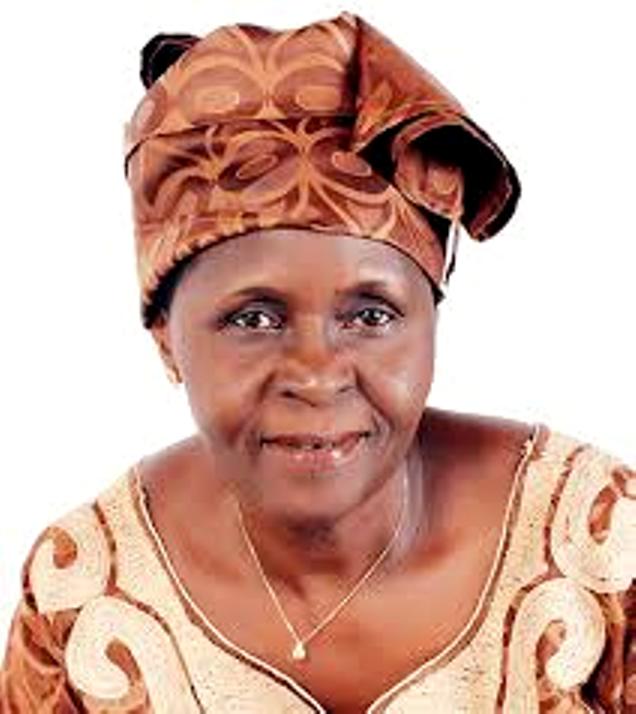
In her welcome remarks, Prof. Joy Kwesiga the Guest of Honour congratulated the project team on the important research in which she participated and that she had been looking forward to the general research results. She highlighted that there was a minimal number of females that participate in higher education leadership. She shared her past experience while serving in Makerere University and expected the findings to trigger reflection on how to increase the number of women in leadership positions through established policies, support mechanisms and practices. Prof. Kwesiga noted that when the only female presidential candidate Nancy Kalembe said that females are going to break the glass ceiling and that becoming president was one of them, her mind was drawn to the importance of gender perspectives in leadership and management, in teaching, and research. Finally, she said she was glad that the study had been successfully conducted and that it would open up into a wider field so that we can have specialists.
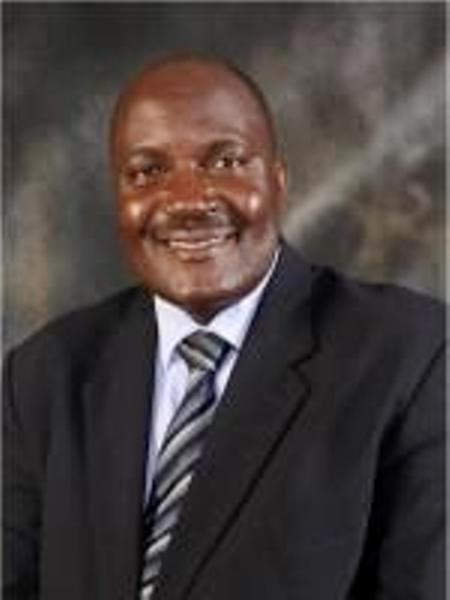
The Principal CEES, Prof. Fred Masagazi Masaazi in his remarks, congratulated the lead researcher Dr. Nakamanya Florence and the research team upon attaining the milestone. He said that, whereas research was a boost to our academic endeavors, it was also a springboard for opening up space for national development. He further said that he strongly believed that the findings would go a long way in informing gender policy and other aspects related to gender and Higher Education. He thanked the Dean, East African School of Higher Education Studies and Development (EASHESD), for the support in ensuring that the School contributes to the body of knowledge, and for impacting on the College’s visibility. He further thanked the Mak-RIF team for the support and for identifying and funding the special area of study on enhancing capacities of women to leadership positions in universities. He concluded by noting that young researchers like Dr. Nakamanya were pillars for the University’s development.
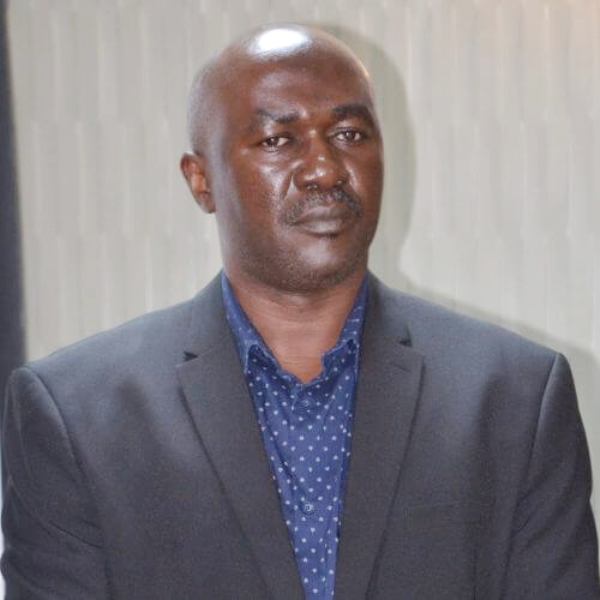
Prof. Charles Masembe, Member of the Mak-RIF Grants Management Committee (GMC) in his speech welcomed the participants noting that they had been drawn from different universities and organisations. He thanked them for making time to attend the dissemination. He thanked the researchers and innovators for their tireless efforts. In a special way, he thanked the Government of Uganda for the continued support to Makerere University and for funding research through Mak-RIF. He further said that for a country to move from lower to middle income status, it needs research. In addition, he said that Mak-RIF is aimed at complementing available research funding to address unfunded priorities critical to accelerating development across different sectors of the economy in Uganda. He was happy that the WOLEP project had unearthed the capacity needs of the different categories of female leaders. He implored the project team to partner with a range of stakeholders to address the capacity needs as they roll out the project’s proposed training programme.
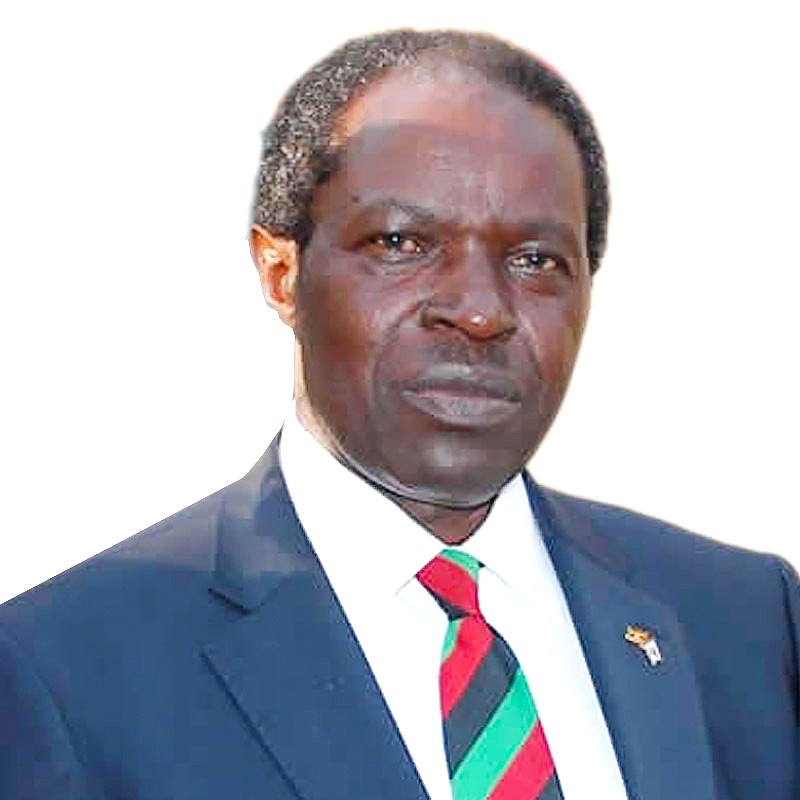
Prof. William Bazeyo Chairperson Mak-RIF Grants Management Committee (GMC), thanked the organizers for the Dissemination. He highlighted that this was the first dissemination he had attended ever since the fund started. He congratulated Dr. Florence Nakamanya and her team and thanked the Principal, Professor Masagazi for supporting research efforts in CEES. He noted that he believed in negotiation and he challenged every researcher to become a negotiator so as to ensure research uptake by the policy makers. He noted that since Makerere has the capacity and the negotiation skills, it should do better. He acknowledged the contributions of other teams on RIF1 and RIF2 and announced that RIF3 had been approved. He emphasized that whereas RIF1 was UGX 30 billion, RIF2 was UGX 30 billion and COVID-19 Response UGX 9.3 billion, he had negotiated for a greater allocation of funds for RIF3 and it will be higher, if not double.
He informed participants that he was also negotiating on how Makerere University (Mak) can support other universities to do research. He cited an example of a model university in Malaysia which was leading in research and had been funded to support research and capacity building in other public universities. Furthermore, he re-echoed the need of researchers to reach out to stakeholders and different ministries to share research findings. He called upon all researchers to begin writing policy briefs. He finally set a challenge to his colleagues on the GMC to start a programme to train researchers on how to write policy briefs.
Article by John Nuwagaba, CEES
You may like
-
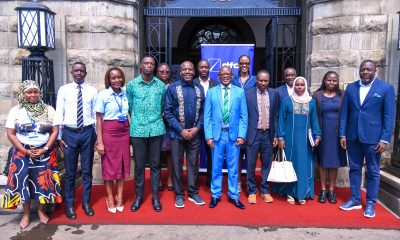

Makerere University, DFCU Bank Sign MoU to Advance Innovation, Student Leadership and Research
-
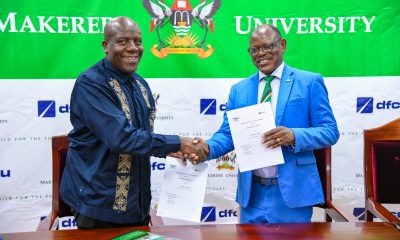

Press Release: Mak & DFCU Partner to Enhance Higher Education, Research & Student Support
-
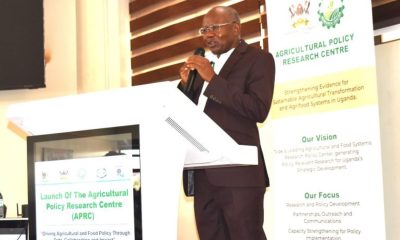

APRC Trains Graduate Students & Stakeholders in the Use of the African Agriculture Adaptation Atlas
-
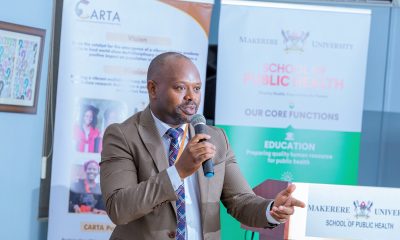

CARTA Focal Person Dr. Isunju Appointed to MakPress Editorial Board
-
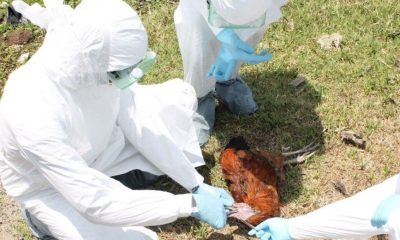

Advancing Regional Health Priorities Through the CARTA Research Hubs
-
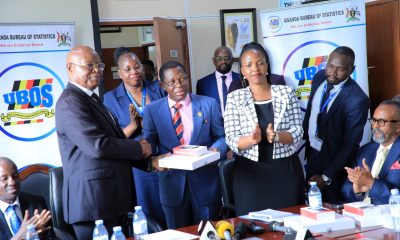

Makerere University Receives 700 Tablets from UBOS to Boost Statistical Activities
Education
Admission List to Bachelor of Education External (BED) 2025/26 -Private Sponsorship
Published
2 days agoon
July 4, 2025By
Mak Editor
The Office of Academic Registrar, Makerere University has released the admission list of Diploma holders provisionally admitted to Bachelor of Education (EXTERNAL) programme under Private Sponsorship for the Academic Year 2025/2026 pending verification of their academic documents by the awarding institutions.
The List can be accessed by following the link below:
Update 4th July 2025, Batch II
Education
Mak CEES discusses partnership with King Salman Global Academy for the Arabic Language
Published
2 weeks agoon
June 20, 2025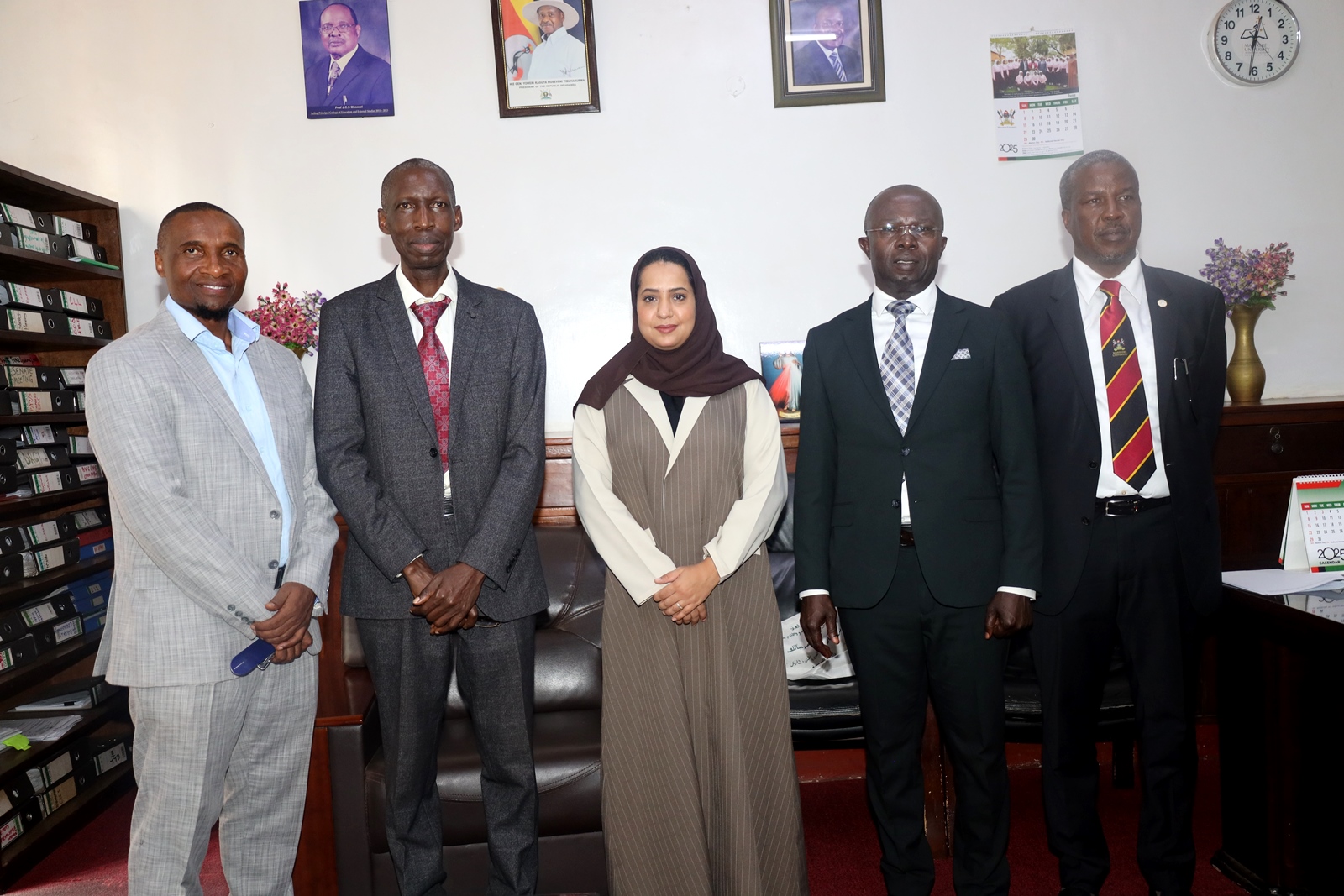
On 17th June 2025, the Principal of the College of Education and External Studies at Makerere University, Prof. Anthony Muwagga Mugagga hosted a meeting with Dr. Hanan Al Malki, the Director of Program and Centre Planning and Management at the King Salman Global Academy for the Arabic Language, aimed at building institutionalized partnerships in language education in Uganda and globally.
The proposed collaboration presents Makerere University with a golden opportunity to increase the number of students studying the Arabic language at the Undergraduate and Masters’ degree levels respectively through provision of scholarships, as well as, staff and student exchange programmes.
With reference to the 2024/2025 academic year, over 40 students are studying Arabic Language studies under the Bachelor of Arts with Education degree programme, and two (2) students studying the Arabic language at the Masters degree level at the College of Education and External Studies.
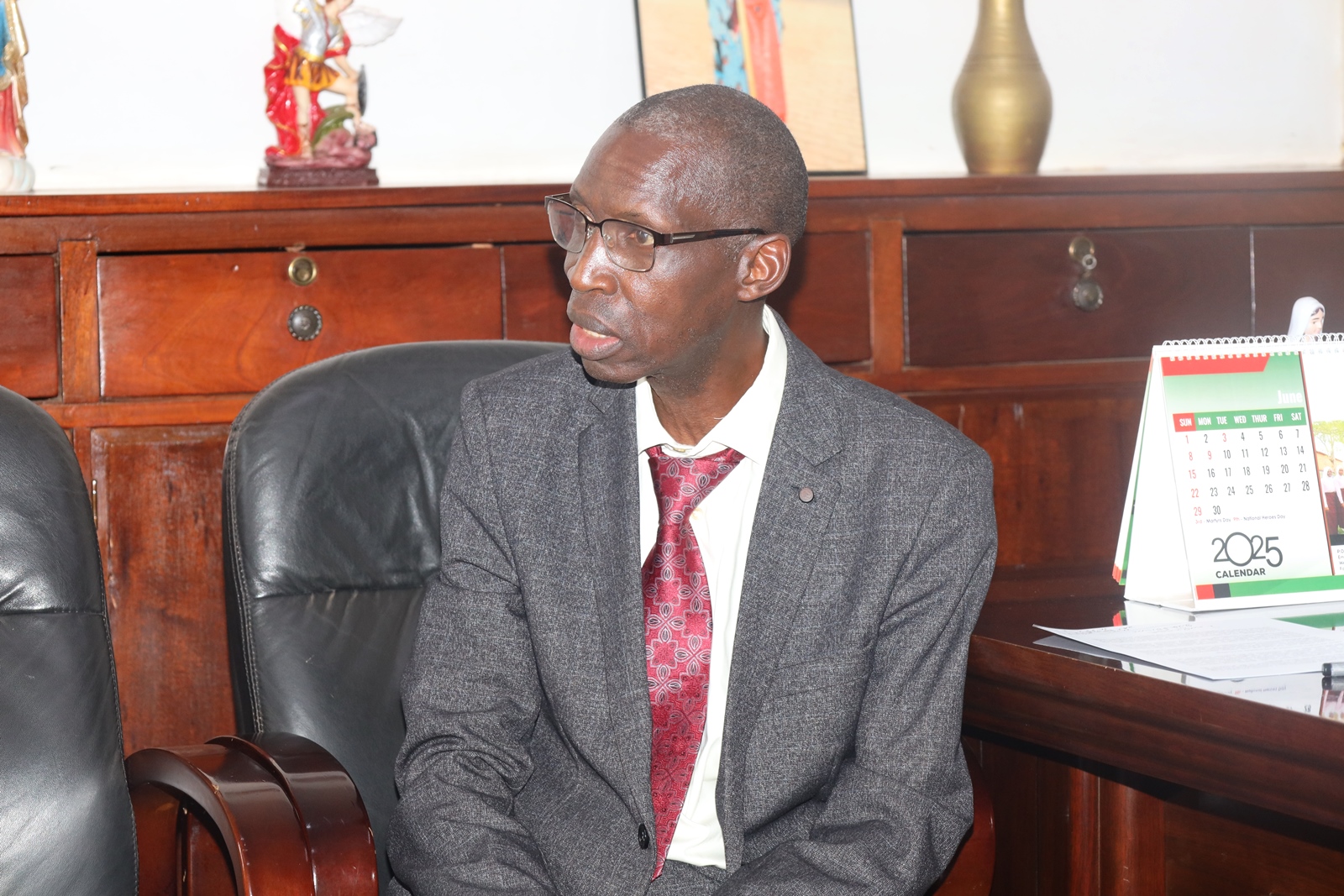
Welcoming Director Malki to the College, Prof. Mugagga expressed the readiness of staff members to collaborate with reputable partners to promote language education in Uganda and globally. He was delighted that through this meeting, the College had embarked on a fruitful discussion to partner with an international academy established to teach, promote and preserve the Arabic language.
The meeting brought on board the following academic staff at Makerere University: Dr. Muhammad Kiggundu Musoke-Head, Department of Humanities and Language Education, Dr. Ayoub Twahir Sekitto-Coordinator Arabic Languages at the School of Education, and Dr. Ibrahim Ssali- Coordinator Arabic Language, College of Humanities and Social Sciences.
Committed to forging collaboration with the College of Education and External Studies at Makerere University, Dr. Malki disclosed that partnering with universities was one of the most effective strategies in the promotion of the Arabic language, and revival of the Arabic culture in Uganda. In line with advancing the Arabic culture and values globally, Dr. Malki emphasized the academy’s focus on language planning, computational linguistics, education, and culture.
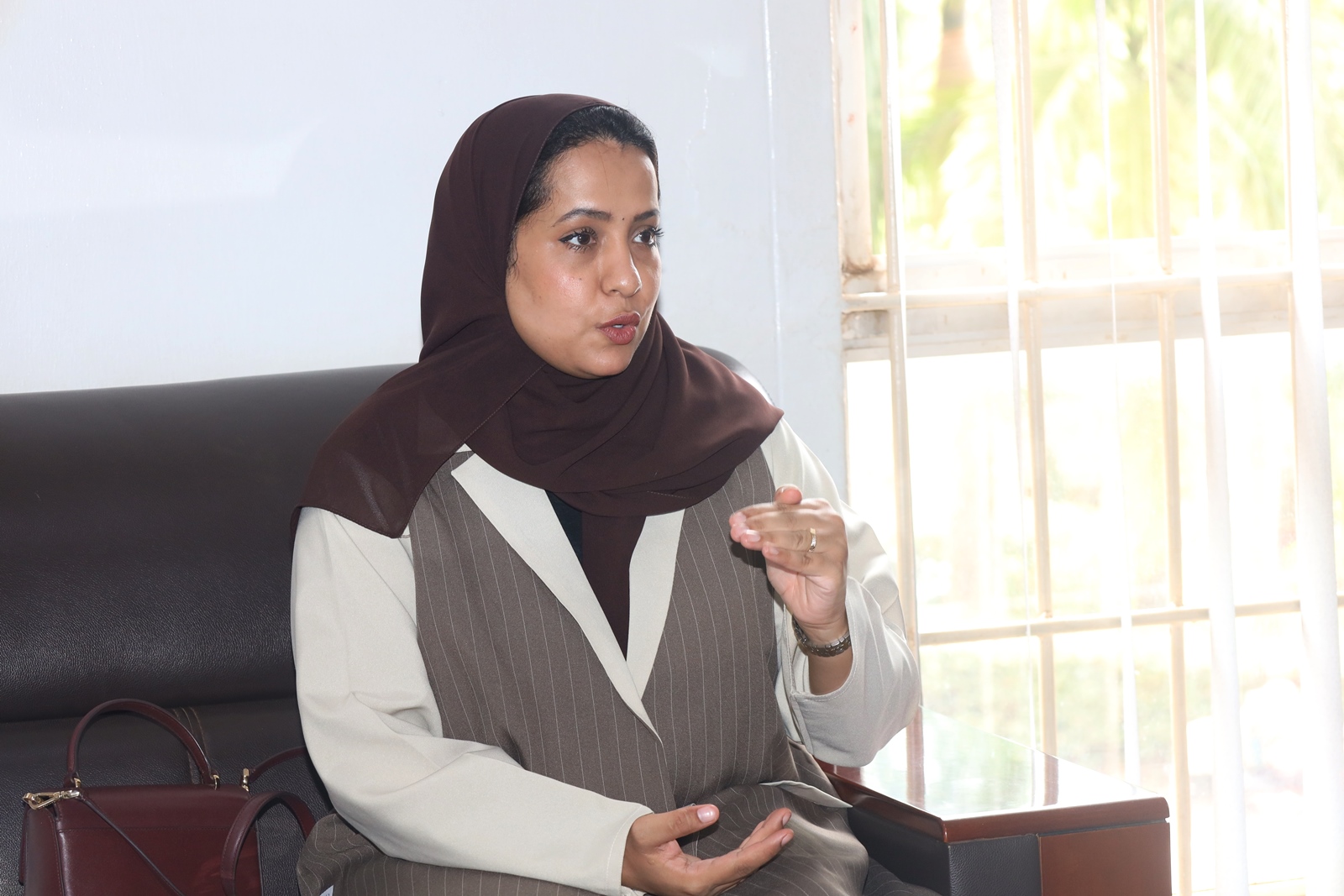
Contributing to the discussion on examining proficiency in the language, Dr. Malki recommended the use of digital testing to measure students’ proficiency in Arabic language.
During the meeting, both parties agreed to actively participate in the rejuvenation of Arabic studies at Makerere University and Uganda at large, through frameworks and institutionalized approaches guided by a Memorandum of Understanding (MoU). The MoU would set parameters for the collaboration integrating the proposed hosting of an Arabic Centre at Makerere University, provision of scholarships, staff and student mobility programmes, joint lectures and supervision, and establishment of teaching and learning facilities.
The College Principal supported the proposal to establish a specialized Arabic Institute with a Language Auditorium. According to Prof. Mugagga, the facility would provide one-stop centre for the teaching of the Arabic language and cultural exchange.
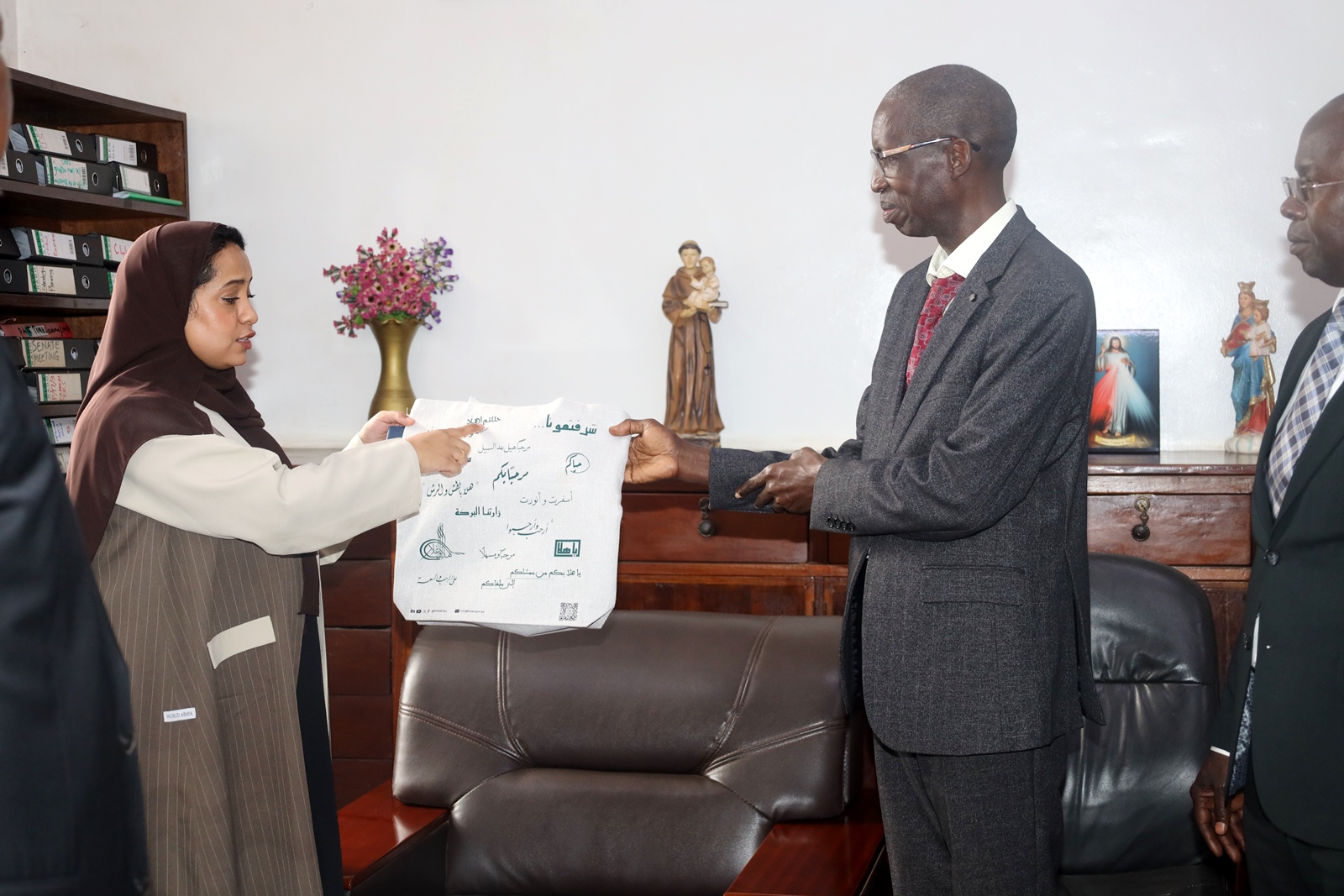
The Head of the Department of Humanities and Language Education, Dr. Kiggundu Musoke stressed the need to prioritize teacher training in the Arabic language field. He explained that through its degree programmes, the College of Education and External Studies trains a number of students/teachers, who on completion of their studies, contribute to the teaching, promotion and dissemination of the Arabic language in Uganda and beyond. However, the demand to enroll for the Arabic language studies is curtailed by the financial limitations faced by some of the prospective applicants.
Convinced that if the prospective students are supported financially to access University education the student enrollment in Arabic language studies would increase to the desired levels, Dr. Kiggundu Musoke urged members to expedite the finalization of the MoU to boost collaboration and provision of scholarships to both staff and students.
Education
Makerere Charts Bold Path for Digital Learning with New ODeL Master Plan
Published
1 month agoon
June 6, 2025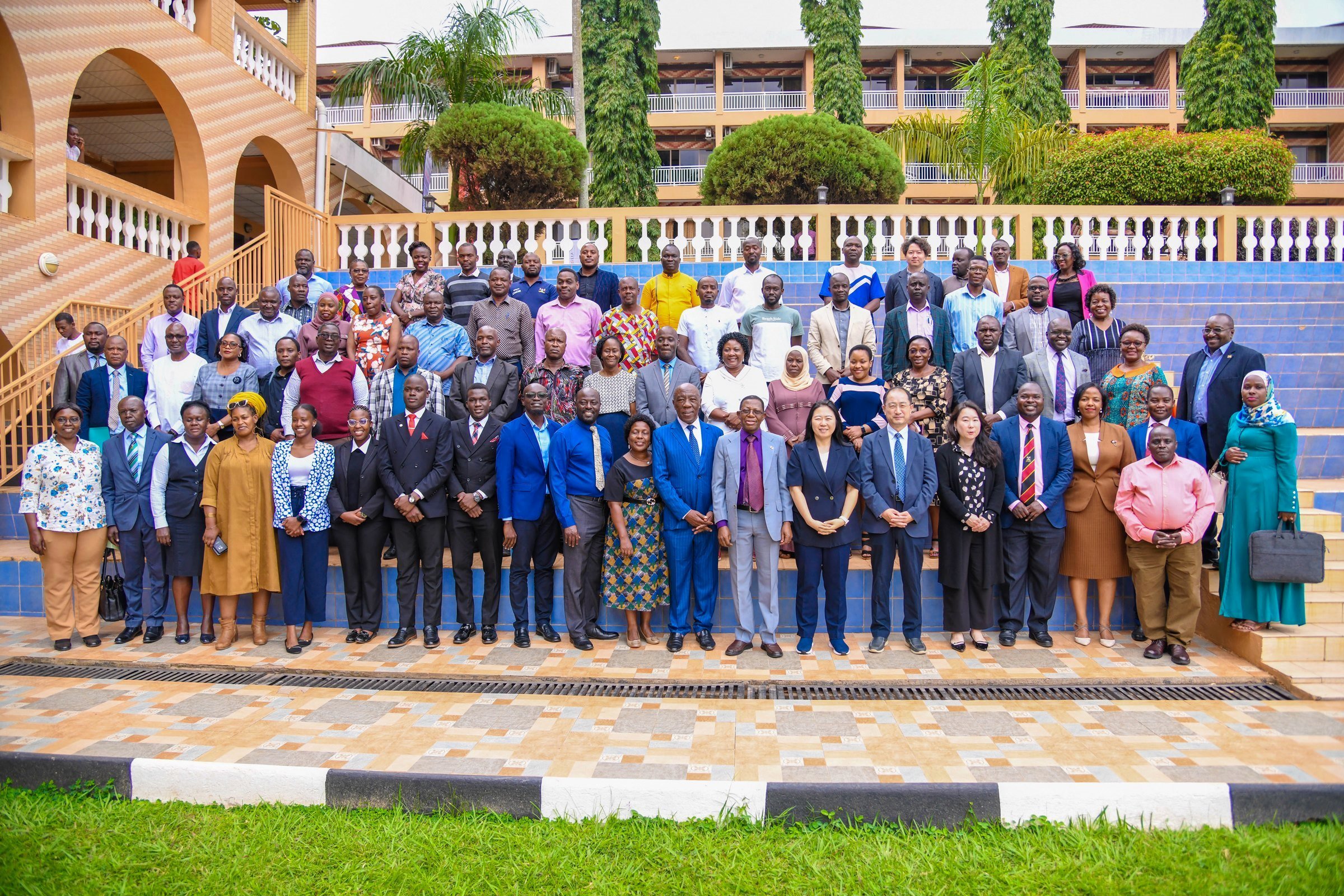
Makerere University has taken a significant step toward transforming its digital education landscape with the unveiling and stakeholder review of its Draft Master Plan for Open, Distance, and e-Learning (ODeL). The consultative workshop, held on Thursday, June 5, 2025, at Hotel Africana, brought together university leadership, academic staff, student representatives, and development partners to review the 10-year roadmap aimed at scaling access to quality, affordable, and inclusive education.
The workshop was officially opened by the Deputy Vice Chancellor (Academic Affairs), Professor Buyinza Mukadasi, who represented the Vice Chancellor. In his remarks, Prof. Buyinza underscored the transformative potential of the KOICA-supported initiative.
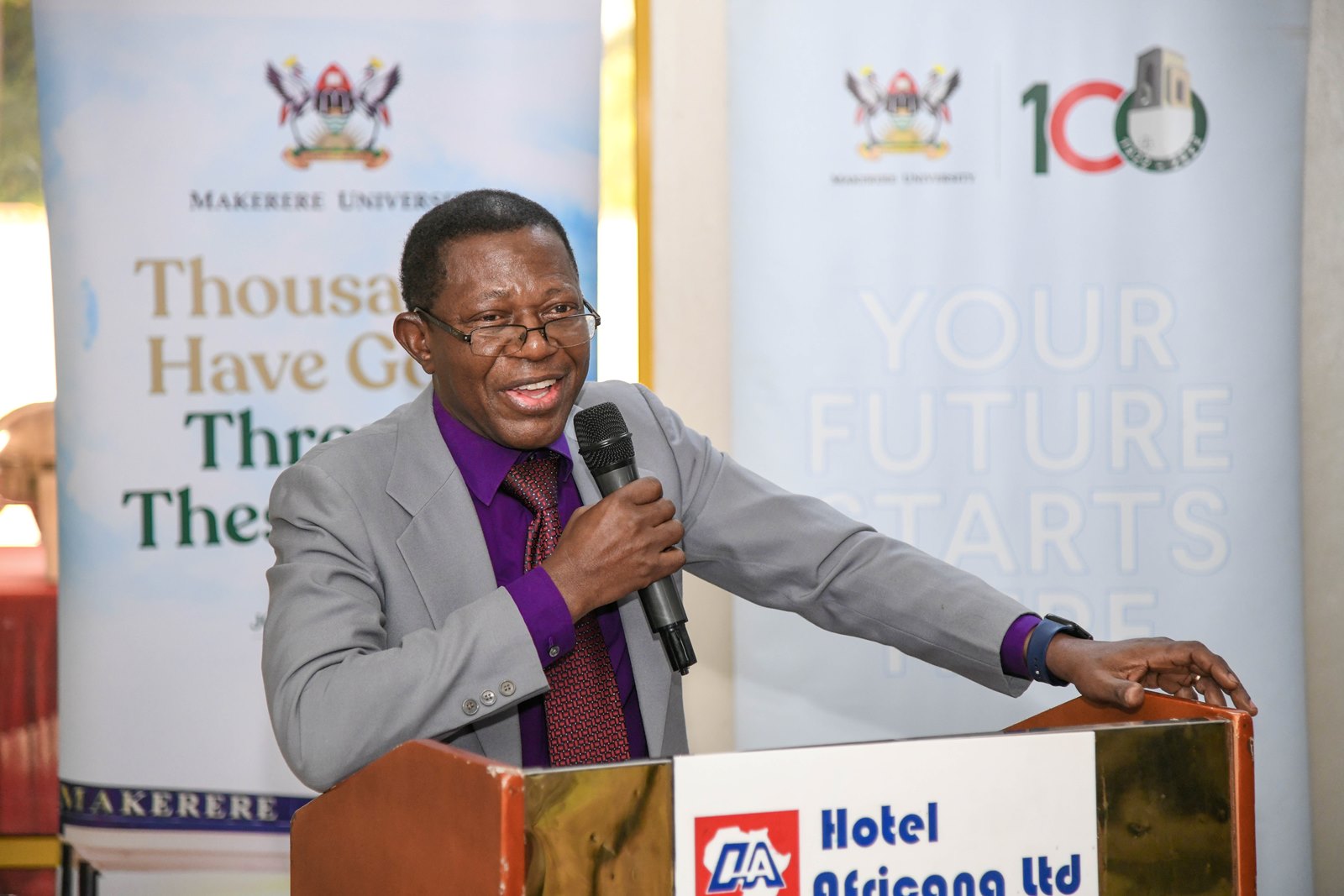
“This project is a significant milestone in our journey to enhance the university’s capacity in ODeL,” he noted. “With support from the people of the Republic of Korea, KOICA’s grant will enable us to strengthen our ODeL infrastructure, develop high-quality digital content, and build staff capacity. This investment will undoubtedly have a lasting impact on our institution and the wider education sector in Uganda.”
Prof. Buyinza also paid tribute to the late Prof. Sung Seyeoung, the head of the Project Management Consultant team in Seoul, who passed away earlier this year, describing him as “a dedicated partner in this transformative journey.”
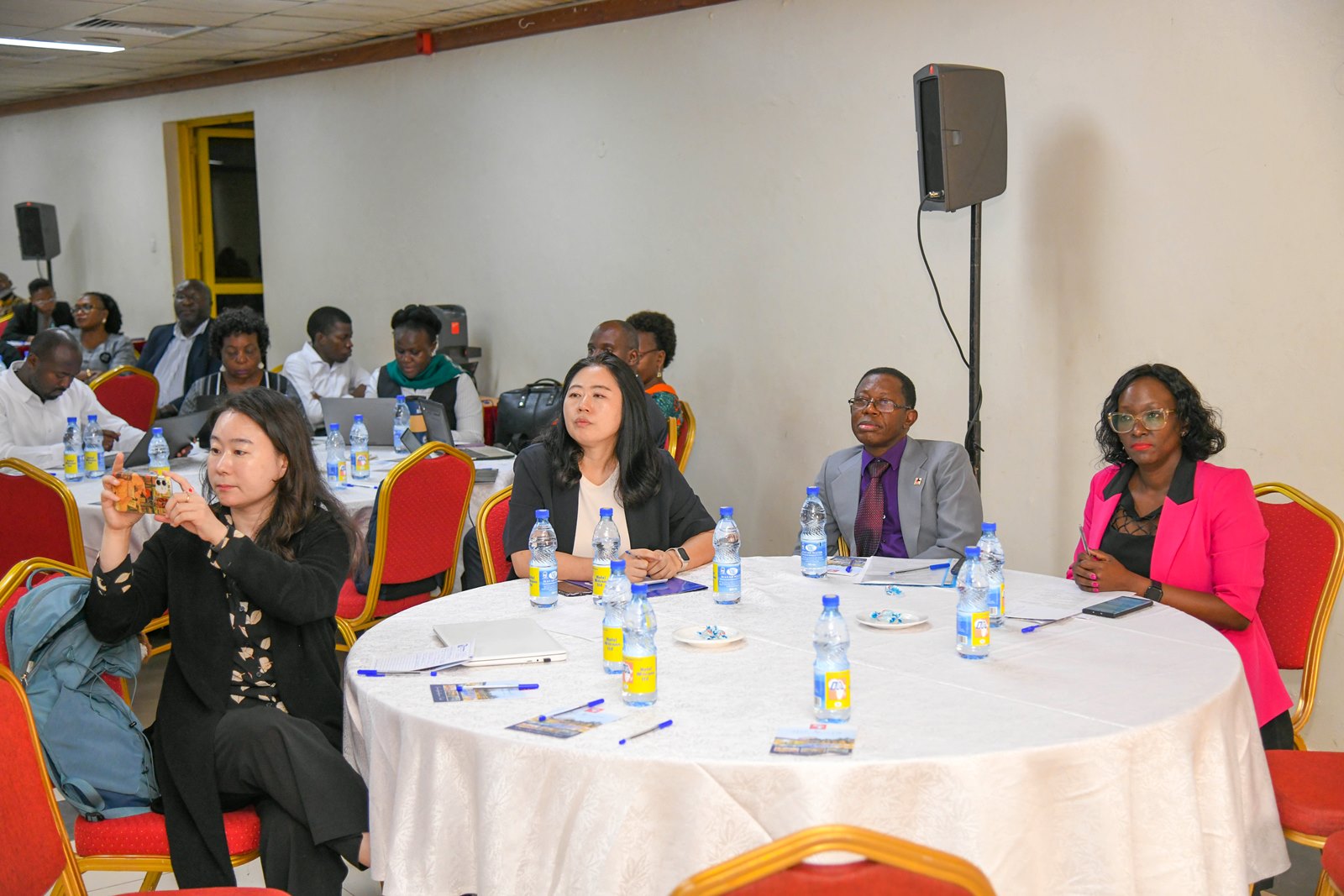
The project, which began in 2024, is being implemented with technical support from the Korea National Open University (KNOU) and the Korea Institute for Development Strategy (KDS). It focuses on three core components: development of a strategic and contextualized ODeL masterplan; capacity building for academic, administrative, and technical staff; and enhancement of ODeL infrastructure, including a new Learning Management System (LMS), Content Management System (CMS), ICT equipment, and the construction of a dedicated ODeL building.
Professor Henry Alinaitwe, the Project Investigator, emphasized the forward-looking nature of the initiative. “Through this masterplan, we are not only expanding access to higher education across Uganda and beyond, but also redefining how knowledge is delivered in the 21st century,” he said.
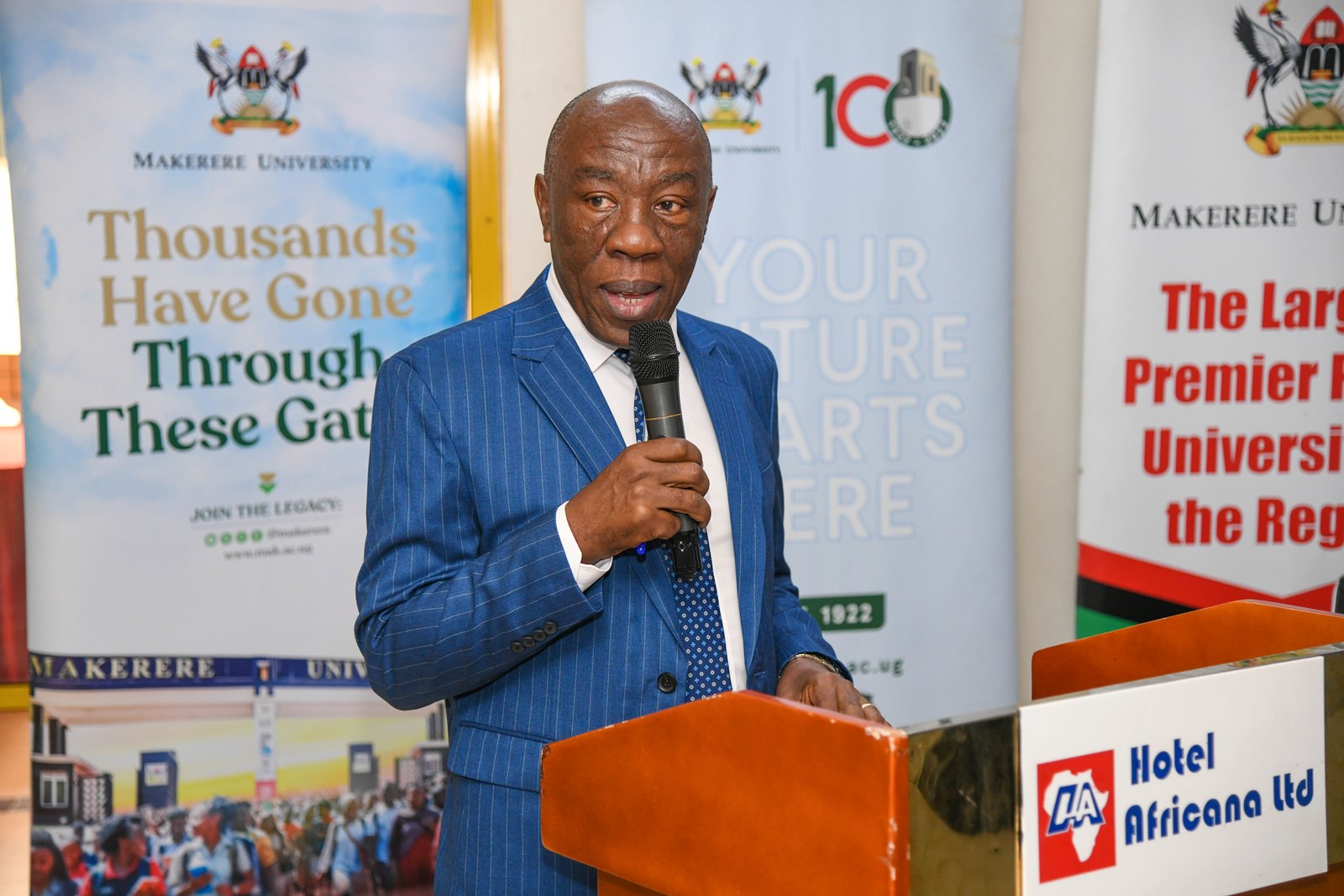
The workshop aimed to disseminate information about the masterplan, gather stakeholder feedback, and prepare the document for preliminary approvals by the University Senate and Council. The draft was developed by a joint task force composed of Ugandan and Korean experts, including representatives from KNOU, KDS, Makerere’s Institute of Open, Distance and e-Learning (IODel), and the Directorate for ICT Support (DICTS).
Prof. Alinaitwe noted that all three project components are progressing steadily. Training sessions are underway both in Uganda and Korea, and the design for the Mak-ODeL building is currently 60% complete, with construction expected to commence later in the year.
The ODeL Master Plan (2025–2035) envisions Makerere as a regional hub for digital education. It outlines strategies to increase the number of accredited ODeL programmes, enhance ICT infrastructure, improve content development, and ensure that distance learners can access high-quality and flexible education through the university’s Moodle-based MUELE platform.
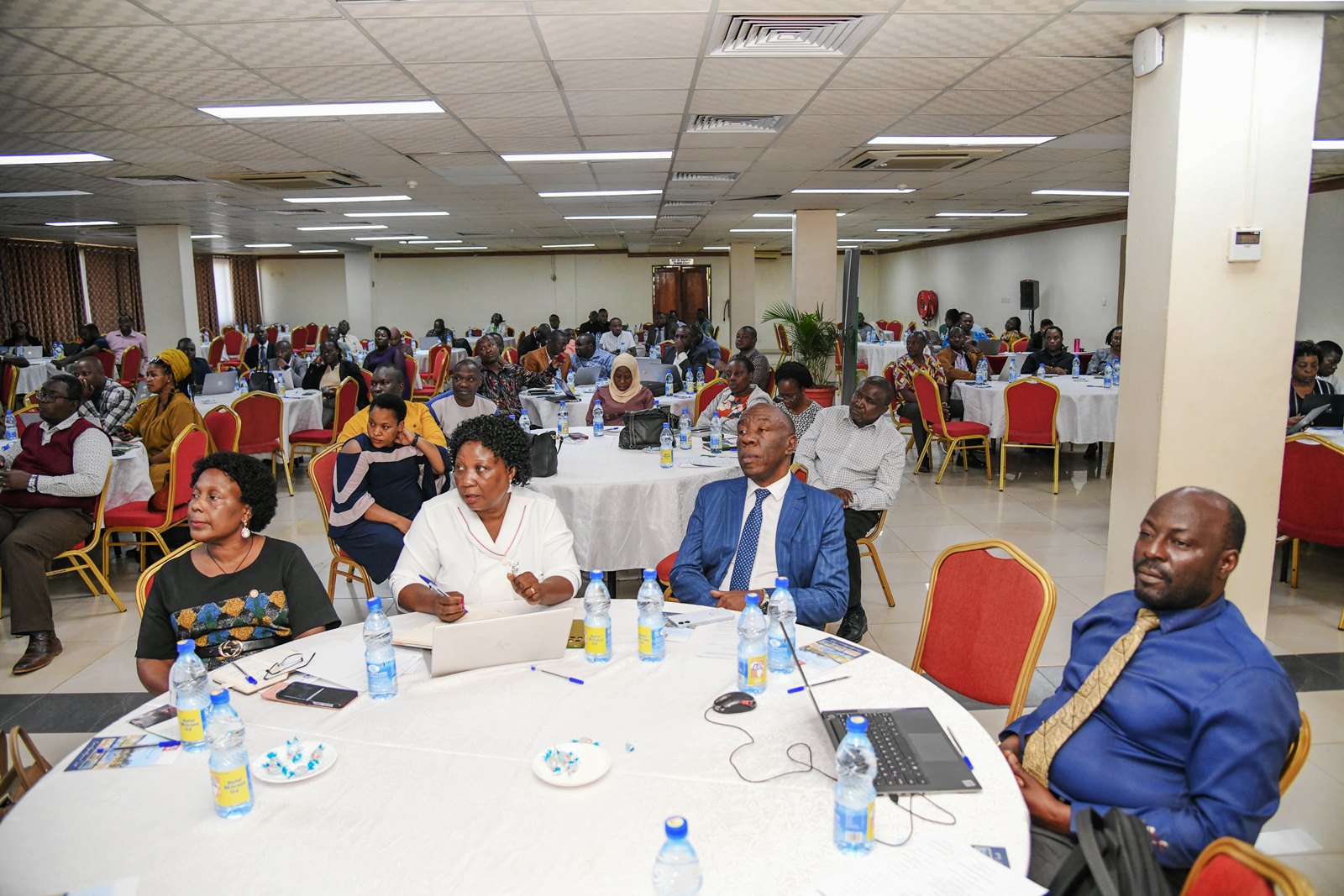
Speaking at the workshop, KOICA Country Director Ms. Ahn Jihee commended Makerere for its commitment to digital transformation. “We believe education is a powerful driver of national development, and we are proud to partner with Makerere University on this ambitious journey,” she said. “Our partnership is not just about technology, but about building resilient systems and empowered people who can shape the future.”
She also recognized the efforts of both Ugandan and Korean teams and encouraged continued dialogue and knowledge sharing.
Currently, only 8 of Makerere’s academic programmes are offered through ODeL. However, the university’s Strategic Plan (2020–2030) envisions a substantial increase in that number. The new masterplan draws from international best practices including models from KNOU, Hanoi Open University, and the Africa Virtual University.
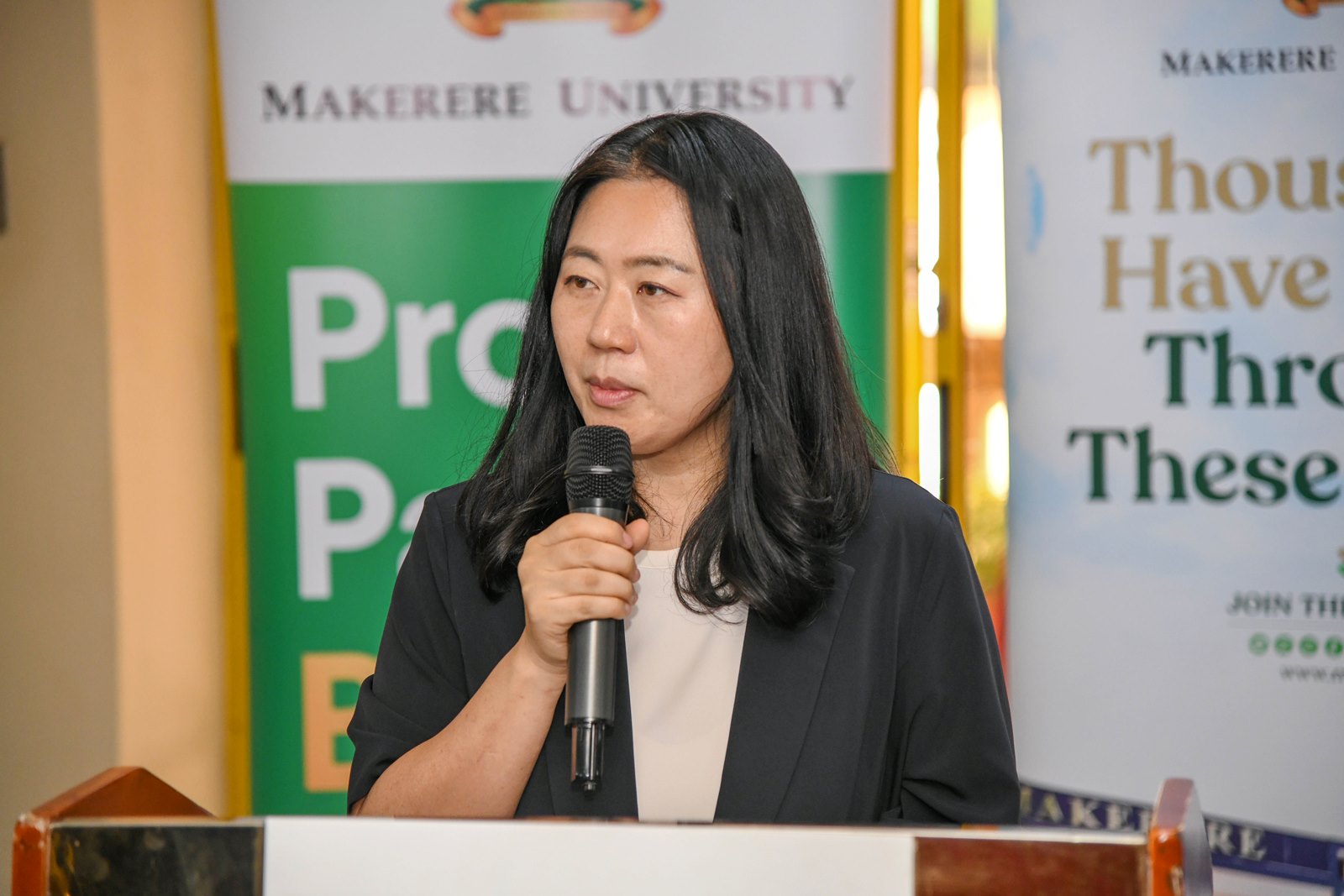
Prof. Alinaitwe extended special thanks to KOICA and its Kampala-based experts Prof. Kim Hyunjoo and Mr. Kim Kihun for their ongoing support, and acknowledged the contributions of the Makerere team—Prof. Paul Muyinda, Dr. Godfrey Mayende, Dr. Harriet Nabushawo, Dr. Richard Kajumbula, Mr. Samuel Mugabi, and Co-PI Dr. Venny Nakazibwe.
“We are laying the foundation for a future where Makerere University can provide education that is not just accessible, but also adaptable to the needs of learners wherever they may be,” he concluded.
The masterplan, once finalized and approved, is expected to usher in a new era of blended, learner-centered education that meets both local and global demands.
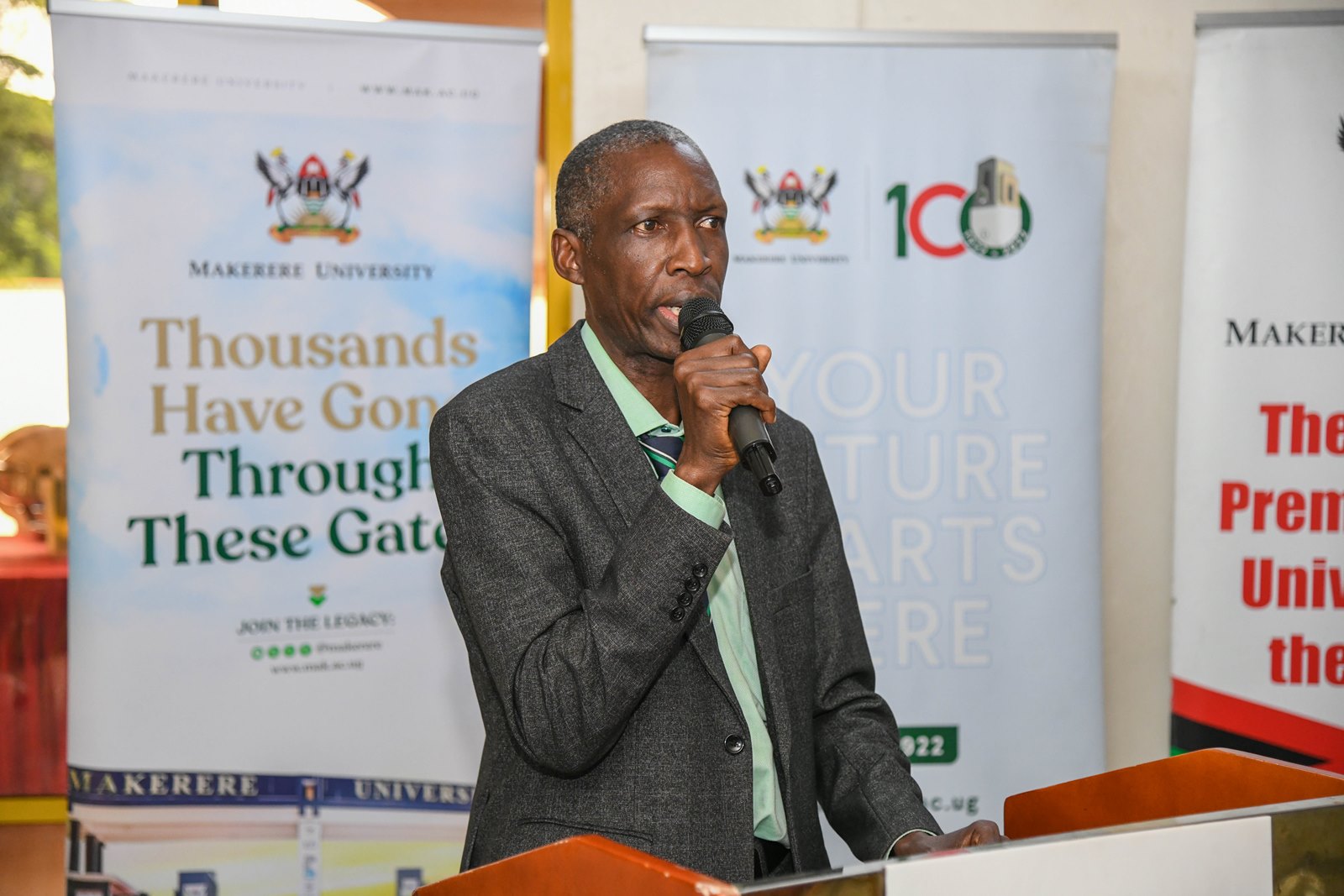
In his closing remarks, Professor Anthony Mugagga, who represented the Deputy Vice Chancellor (Finance and Administration), applauded participants for their insightful engagement. He emphasized the need for academic units to take ownership of ODeL implementation.
“The future of education is blended and borderless,” Prof. Mugagga said. “We must collectively embrace this shift—not just through policy, but through action: by developing new programmes, supporting learners, and investing in infrastructure that will carry us into the next generation of higher education.”
He also expressed appreciation to KOICA for its continued support and funding, which he said is helping to shape a more resilient and inclusive education system for Uganda and the region.
Trending
-

 Education2 days ago
Education2 days agoAdmission List to Bachelor of Education External (BED) 2025/26 -Private Sponsorship
-

 General1 week ago
General1 week agoMature Age Scheme Exam Results for 2025/2026
-

 General2 weeks ago
General2 weeks agoFreshers’ Joining Instructions 2025/2026
-

 General5 days ago
General5 days agoUndergraduate Admission List Self Sponsorship Scheme 2025/2026
-

 General2 weeks ago
General2 weeks agoMastercard Foundation Board pays its inaugural visit to Makerere University
